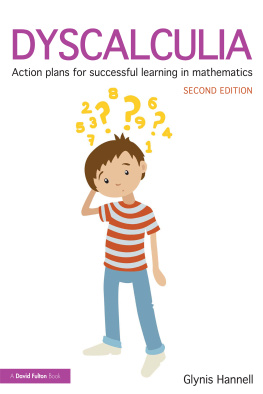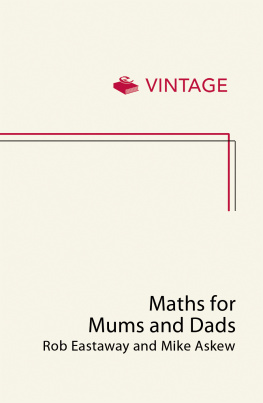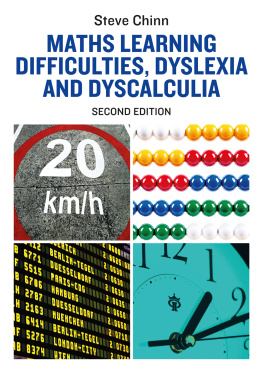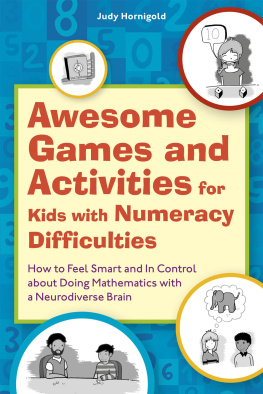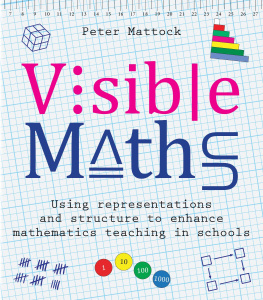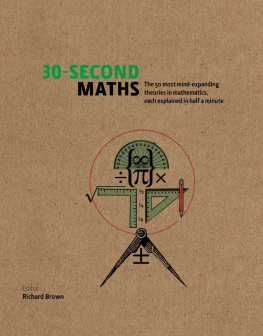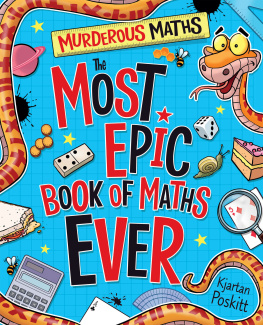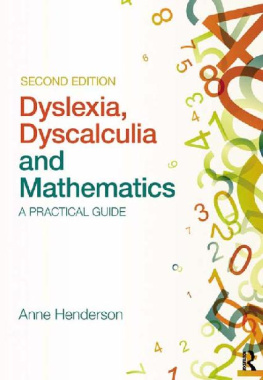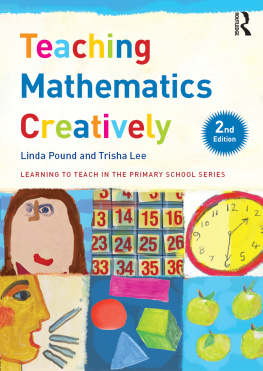
Dyscalculia
Based on expert observations of children who experience difficulties with maths this book gives a comprehensive overview of dyscalculia, providing a wealth of information and useful guidance for any practitioner. With a wide range of appropriate and proven intervention strategies it guides readers through the cognitive processes that underpin success in mathematics and gives fascinating insights into why individual students struggle with maths. Readers are taken step-by-step through each aspect of the maths curriculum and each section includes:
- Examples which illustrate why particular maths difficulties occur
- Practical action plans which help teachers optimise childrens progress in mathematics
This fully revised second edition will bring the new research findings into the practical realm of the classroom. Reflecting current knowledge, Glynis Hannell gives increased emphasis to the importance of training number sense before teaching formalities, the role of concentration difficulties and the importance of teaching children to use strategic thinking. Recognising that mathematical learning has a neurological basis will continue to underpin the text, as this has significant practical implications for the teacher.
Glynis Hannell is an educational consultant and award winning author. She has previously published with Routledge and David Fulton.
Dyscalculia
Action plans for successful learning in mathematics
Second edition
Glynis Hannell

First published 2005
This second edition published 2013
by Routledge
2 Park Square, Milton Park, Abingdon, Oxon OX14 4RN
Simultaneously published in the USA and Canada
by Routledge
605 Third Avenue, New York, NY 10017
Routledge is an imprint of the Taylor & Francis Group, an informa business
2013 Glynis Hannell
The right of Glynis Hannell to be identified as author of this work has been asserted by her in accordance with sections 77 and 78 of the Copyright, Designs and Patents Act 1988.
All rights reserved. No part of this book may be reprinted or reproduced or utilised in any form or by any electronic, mechanical, or other means, now known or hereafter invented, including photocopying and recording, or in any information storage or retrieval system, without permission in writing from the publishers.
All rights reserved. The purchase of this copyright material confers the right on the purchasing institution to photocopy pages which bear the photocopy icon and copyright line at the bottom of the page. No other parts of this book may be reprinted or reproduced or utilised in any form or by any electronic, mechanical, or other means, now known or hereafter invented, including photocopying and recording, or in any information storage or retrieval system, without permission in writing from the publishers.
Trademark notice: Product or corporate names may be trademarks or registered trademarks, and are used only for identification and explanation without intent to infringe.
British Library Cataloguing in Publication Data
A catalogue record for this book is available from the British Library
Library of Congress Cataloging in Publication Data
Hannell, Glynis.
Dyscalculia : action plans for successful learning in mathematics / Glynis Hannell. -- 2nd ed.
p. cm.
Includes bibliographical references.
ISBN 978-0-415-66013-6 (pbk.) -- ISBN 978-0-203-07435-0 (ebook) 1. Acalculia in children. 2. Mathematics--Study and teaching. 3. Learning disabled children--Education. I. Title.
RJ496.A25H36 2013
618.9285889--dc23
2012026702
ISBN: 978-0-415-66013-6 (pbk)
ISBN: 978-0-203-07435-0 (ebk)
DOI: 10.4324/9780203074350
Typeset in Bembo
by Fakenham Prepress Solutions, Fakenham, Norfolk NR21 8NN
Contents
Introduction to dyscalculia
Literacy difficulties account for over 90% of the research literature on learning disorders, and yet in every classroom there are an equal number of children struggling with mathematics. This book outlines the essentials of the mathematics learning disorder called dyscalculia and offers numerous practical ways in which these difficulties can be addressed.
Understanding dyscalculia
DOI: 10.4324/9780203074350-1
What is dyscalculia?
The term dyscalculia is used to describe specific difficulties with mathematics. In many ways it is the mathematical equivalent of dyslexia, which is a specific difficulty with literacy.
Pupils with dyscalculia seem to be just as intelligent as their peers. They have been taught in the same way and engaged in the same mathematical activities and yet they encounter distinct difficulties in mastering the basics of mathematical thinking. Appropriate instruction and practice does not produce the expected gains in understanding and competence. As a result, pupils with dyscalculia often fail to acquire the essential concepts that underpin skills in performing mathematical procedures.
The disorder is also sometimes referred to as developmental dyscalculia, indicating that it is a developmental problem, as distinct from a difficulty that has been acquired through accident, illness, poor teaching or other adverse circumstances.
Although there is general agreement that some individual pupils do, quite clearly, have specific and sometimes severe difficulties with mathematics, there has been considerable professional debate about the precise nature of dyscalculia, its extent and its causes. Over recent years, research has clearly shown that there is a neurological basis for the disorder. Specific areas of the brain are now proven to be of critical importance in the development of mathematical thinking. It has also become increasingly evident that pupils with dyscalculia generally demonstrate a fundamental difficulty in acquiring basic number sense ().
These research findings highlight the fact that dyscalculia is a serious learning disorder and not a minor hiccup in learning mathematics that can be easily fixed (or glossed over). It is also very evident that difficulties with concentration and strategic thinking also make significant contributions to the impact of the disorder. You will read more about these important aspects of dyscalculia throughout this book.
The word dyscalculia means literally a disorder in calculation. The Department for Education and Skills defines developmental dyscalculia as a condition that affects the ability to acquire arithmetical skills. Dyscalculic learners may have difficulty understanding simple number concepts, lack an intuitive grasp of numbers and have problems learning number facts and procedures.
In the USA, the National Center for Learning Disabilities defines dyscalculia as a wide range of lifelong learning disabilities involving math. There is no single form of math disability, and difficulties vary from person to person and affect people differently in school and throughout life.
Mathematics is a complex curriculum area. It requires a wide range of skills across several quite distinct domains, such as number sense, spatial reasoning, verbalreasoning, counting and calculating. ) points out that many pupils with dyscalculia can do very well indeed in some domains of the mathematics curriculum and yet have substantial difficulties in others. This reminds us that achievement tests containing a range of mathematical tasks (such as arithmetic, geometry, problem solving and measurement) can be very misleading. Strengths in one area can easily cancel out weaknesses in others. This means, of course, that the overall score may be a very unreliable indicator of the pupil's mathematical ability in specific domains.
Next page
